House bill would remove tax credit: A proposal by House Republicans to eliminate the $7,500 federal tax incentive could be a blow to sales of electric cars that are being marketed for affo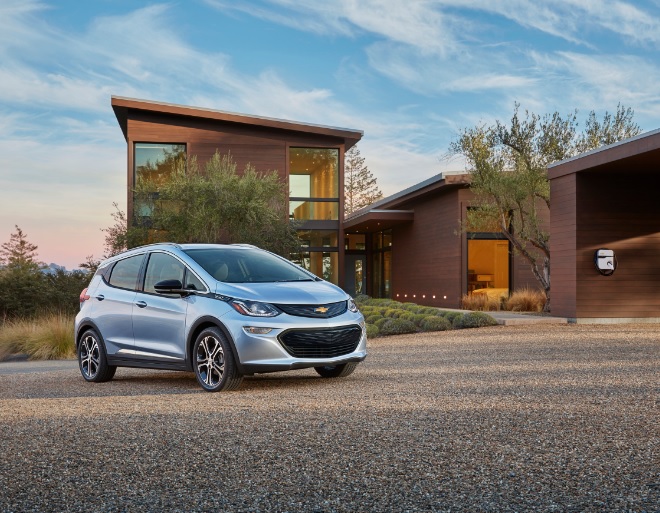 rdability. As part of the tax overhaul bill proposed to House Ways and Means Committee on Thursday, the repeal would take effect at the end of 2017. The Senate is working on its own version of a tax overhaul. General Motors is asking legislators to repeal that part of the bill and other automakers are likely to join in with the bill expected to hurt efforts to bring in more consumers as electric vehicle buyers. “That will stop any electric vehicle market in the U.S., apart from sales of the highly expensive Tesla Model S,” said Xavier Mosquet, senior partner at consultant Boston Consulting Group. “There’s no Tesla 3, no Bolt, no Leaf in a market without incentives.”
rdability. As part of the tax overhaul bill proposed to House Ways and Means Committee on Thursday, the repeal would take effect at the end of 2017. The Senate is working on its own version of a tax overhaul. General Motors is asking legislators to repeal that part of the bill and other automakers are likely to join in with the bill expected to hurt efforts to bring in more consumers as electric vehicle buyers. “That will stop any electric vehicle market in the U.S., apart from sales of the highly expensive Tesla Model S,” said Xavier Mosquet, senior partner at consultant Boston Consulting Group. “There’s no Tesla 3, no Bolt, no Leaf in a market without incentives.”
All-electric vehicle demand will leap in near future: Battery electric vehicles will make up a much larger share of global vehicle production and sales, but not for a few years, according to a new study released yesterday by Boston Consulting Group. EVs won’t see much serious growth until after 2025 and will likely make up about 14% of global vehicle production by 2030 after reaching about 6% in 2025, the study said. That will be a huge leap from its current level, at about 1% of global new vehicle sales. Incentives like the $7,500 federal tax credit will be needed for now, but that will eventually go away. The study’s authors said that improved battery technology, lower costs, and government mandates will be the drivers of greater consumer demand. Market forces will take over by 2030. “Eventually, we’ll reach a point where we don’t need incentives anymore,” said Xavier Mosquet, BCG senior partner and lead author of the study.
Fast charging comes to Europe: An alliance of automakers will be deploying about 400 fast charging stations across Europe by 2020. BMW, Daimler, Ford, and Volkswagen with its Audi and 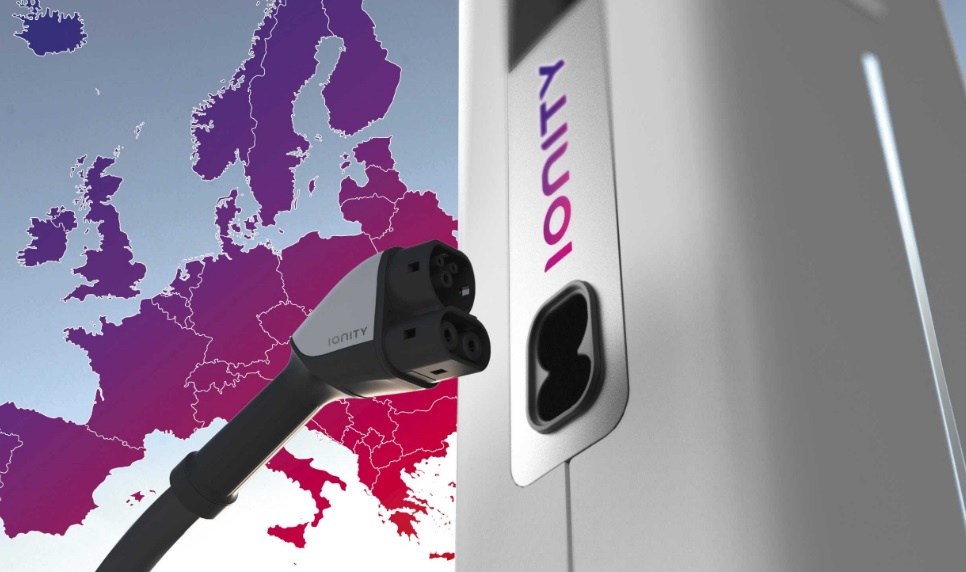 Porsche subsidiaries have formed a joint venture called IONITY to carry it out. The High-Power-Charging (HPC) network will install chargers that will have the capacity to go up to 350 kW and will use the brand-agnostic Combined Charging System as the standard. Automakers hope the wide distribution of the fast chargers will make electric vehicles more appealing for consumers. This year will see 20 of these HPC stations installed. The IONITY joint venture is based in Munich and led by CEO Michael Hajesch, who expects to see 50 employees in place by early 2018. “The first pan-European HPC network plays an essential role in establishing a market for electric vehicles. IONITY will deliver our common goal of providing customers with fast charging and digital payment capability, to facilitate long-distance travel,” Hajesch said.
Porsche subsidiaries have formed a joint venture called IONITY to carry it out. The High-Power-Charging (HPC) network will install chargers that will have the capacity to go up to 350 kW and will use the brand-agnostic Combined Charging System as the standard. Automakers hope the wide distribution of the fast chargers will make electric vehicles more appealing for consumers. This year will see 20 of these HPC stations installed. The IONITY joint venture is based in Munich and led by CEO Michael Hajesch, who expects to see 50 employees in place by early 2018. “The first pan-European HPC network plays an essential role in establishing a market for electric vehicles. IONITY will deliver our common goal of providing customers with fast charging and digital payment capability, to facilitate long-distance travel,” Hajesch said.

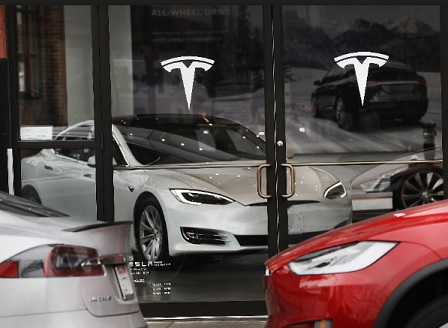 and a $21 million profit in Q3 2016. That’s coming from the huge investment needed for ramping up production of the Model 3 at its Fremont, Calif., assembly plant and its Nevada-based Gigafactory. The company also reported a record $3 billion in quarterly revenue and delivery of about 26,000 vehicles. Speeding up Model 3 production has hit a bottleneck, much of it at the battery factory in Nevada. The goal of building 5,000 of the more affordable electric cars at 5,000 units per week has been moved from the end of 2017 to early 2018. “While we continue to make significant progress each week in fixing Model 3 bottlenecks, the nature of manufacturing challenges during a ramp such as this makes it difficult to predict exactly how long it will take for all bottlenecks to be cleared or when new ones will appear,” Tesla said.
and a $21 million profit in Q3 2016. That’s coming from the huge investment needed for ramping up production of the Model 3 at its Fremont, Calif., assembly plant and its Nevada-based Gigafactory. The company also reported a record $3 billion in quarterly revenue and delivery of about 26,000 vehicles. Speeding up Model 3 production has hit a bottleneck, much of it at the battery factory in Nevada. The goal of building 5,000 of the more affordable electric cars at 5,000 units per week has been moved from the end of 2017 to early 2018. “While we continue to make significant progress each week in fixing Model 3 bottlenecks, the nature of manufacturing challenges during a ramp such as this makes it difficult to predict exactly how long it will take for all bottlenecks to be cleared or when new ones will appear,” Tesla said.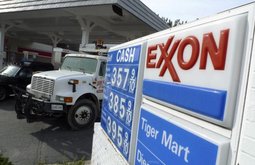 government and the Louisiana Department of Environmental Quality. The company will install and operate air pollution and monitoring technology for pollution reductions coming from eight of its petrochemical manufacturing facilities in Texas and Louisiana. The Dept. of Justice and Environmental Protection Agency had been enforcing violations of the Clean Air Act, coming from the oil company failing to accurately monitor industrial flares at the facilities, causing excess emissions. Some environmentalists say the settlement is not nearly enough to address violations by the oil company going back a decade. EPA administrator Scott Pruitt said its shows the EPA’s commitment to enforcing the law and working with states to address compliance with environmental regulations. It may not address other claims, such as those filed in June by New York’s attorney general accusing former ExxonMobil chief and current Secretary of State Rex Tillerson of misleading investors on the costs of climate change while Tillerson led the oil giant.
government and the Louisiana Department of Environmental Quality. The company will install and operate air pollution and monitoring technology for pollution reductions coming from eight of its petrochemical manufacturing facilities in Texas and Louisiana. The Dept. of Justice and Environmental Protection Agency had been enforcing violations of the Clean Air Act, coming from the oil company failing to accurately monitor industrial flares at the facilities, causing excess emissions. Some environmentalists say the settlement is not nearly enough to address violations by the oil company going back a decade. EPA administrator Scott Pruitt said its shows the EPA’s commitment to enforcing the law and working with states to address compliance with environmental regulations. It may not address other claims, such as those filed in June by New York’s attorney general accusing former ExxonMobil chief and current Secretary of State Rex Tillerson of misleading investors on the costs of climate change while Tillerson led the oil giant.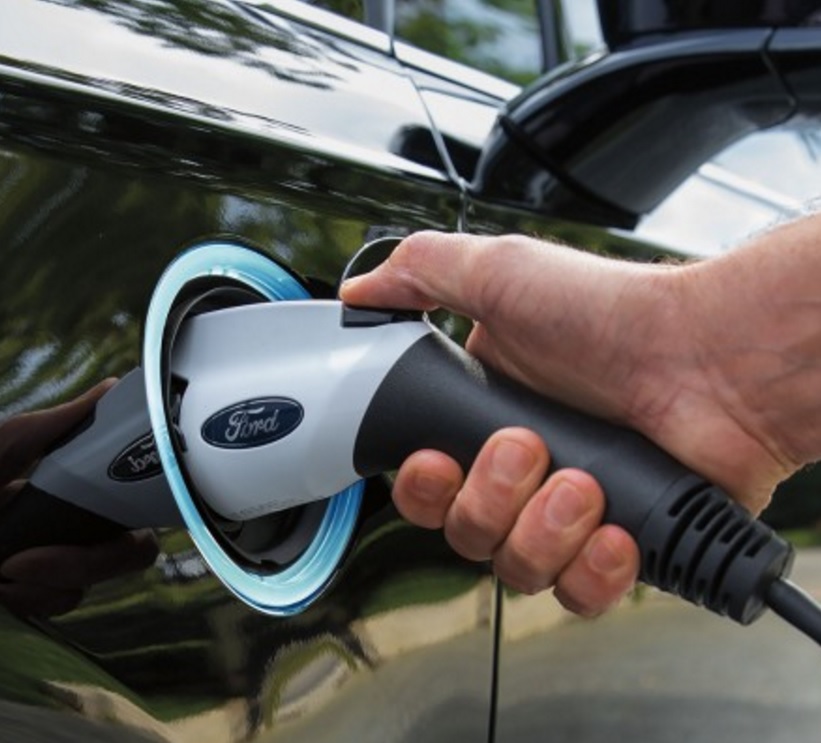 according to a new report from the Electric Vehicle Charging Association – from 5,070 in 2011 to 50,991 this year. As a business sector, the EV charging infrastructure increased 576% in revenue between 2011 and 2016 – from $27 million in 2011 to $182 million in 2016. Revenue could grow to the $276 million by 2020, and the association also forecasts that the industry globally could produce $45.59 million by 2025. As with electric vehicle sales, California has led the way in charging stations. The state’s infrastructure has grown 67% since the association’s first report in October 2015. California now about 15,930 charging outlets in place, not including residential outlets, according to the “State of the Charge” report.
according to a new report from the Electric Vehicle Charging Association – from 5,070 in 2011 to 50,991 this year. As a business sector, the EV charging infrastructure increased 576% in revenue between 2011 and 2016 – from $27 million in 2011 to $182 million in 2016. Revenue could grow to the $276 million by 2020, and the association also forecasts that the industry globally could produce $45.59 million by 2025. As with electric vehicle sales, California has led the way in charging stations. The state’s infrastructure has grown 67% since the association’s first report in October 2015. California now about 15,930 charging outlets in place, not including residential outlets, according to the “State of the Charge” report.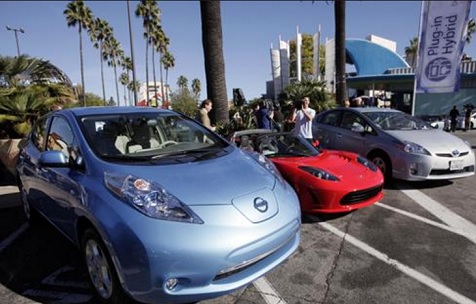 that even when the power is generated by coal power, it still emits fewer emissions that diesel cars. Those findings are especially relevant to the European market, where automakers are gradually reducing the volume of diesel passenger cars. Conducted by VUB university in Brussels for NGO Transport & Environment (T&E) the study analyzed data from several European markets. Dr. Maarten Messagie wrote in the study that there is room for improvement on the battery manufacturing side to reduce the environmental impact, but clean energy sources have the greater impact. As in the U.S. and other countries, those emissions improvements are expected to increase as utilities add more renewable energy generation.
that even when the power is generated by coal power, it still emits fewer emissions that diesel cars. Those findings are especially relevant to the European market, where automakers are gradually reducing the volume of diesel passenger cars. Conducted by VUB university in Brussels for NGO Transport & Environment (T&E) the study analyzed data from several European markets. Dr. Maarten Messagie wrote in the study that there is room for improvement on the battery manufacturing side to reduce the environmental impact, but clean energy sources have the greater impact. As in the U.S. and other countries, those emissions improvements are expected to increase as utilities add more renewable energy generation.